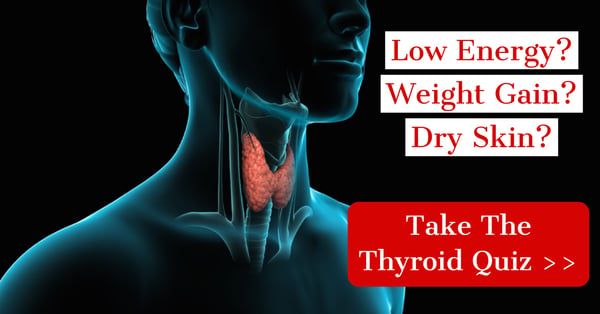
Have you ever noticed that when you start shopping for a new car and begin to narrow down your search criteria that you start to see the same car all over the road while heading through town. Or worst yet, you actually buy the car and then start to see it everywhere? Thus popping your bubble of having something that you thought was unique and special.
Well, you are not alone. There is a name for this phenomenon. It’s called the Baader-Meinhof phenomenon.
Fortunately, it can also come in handy for positive outcomes as well. And no, I am not talking about how Facebook suddenly knows what you have been talking and googling about by your thoughts magically popping up on your newsfeed. Let the government handle that “phenomenon”. We will stick to legal concepts that are within our grasp.
The Baader-Meinhof phenomenon is also known as “Frequency Illusion”. And in 2006, Arnold Zwicky said that frequency illusion could be best described as the brain child of converging two other popular thought theories: selective attention and confirmation bias.
For the sake of this article, we will keep both definitions brief:
Selective attention simply refers to how something that we have recently learned stays fresh in our minds.
Confirmation bias occurs when we search for or interpret information in a way that confirms our preconceived thoughts about the topic.
In regards to new health research, the government likes to do this rather frequently. They silently collect cash from the food conglomerates and wait for when poorly performed research can be interpreted falsely to match their timeless agendas. For example, think about the coconut oil non-sense that was pushed hard by the media last year. If you want to read about how foolish this was, I have previously written about it “here”. (Cajuns and Coconut Oil)
Here at HPHI, we love to use our own version of the Baader-Meinhof phenomenon.
In regards to selective attention, we make it a point to remain “fresh” in the minds of our members. By having them document their habits, they pay a lot more attentions to the choices that they make. They also know that we are just an email or text message away to answer their latest questions about something that they read or heard on the radio. And because we keep such a close mental proximity to our members, (for clarity, we are speaking to “effectively” close, not “Facebook” close) they tend to make better and better choices as the year progresses by knowing that someone is holding them accountable on the other end of the table.
And what about confirmation bias? Well, to be honest, this one is our favorite. What we have seen is that most people will pay real close attention to the news or their social media feeds and like/share/or repost articles or health articles that confirm their preexisting beliefs as opposed to what has worked or is currently working for them. This is what happened with the coconut oil news scam from last year. The folks that have been monitoring their cholesterol particle numbers and inflammation for years while cooking with or adding coconut oil to their vegetables during that time, we suddenly scared that they were harming their bodies.
And, sadly, this doesn’t just occur with coconut oil. It happens all the time.
For example, sometimes we tell our weight loss members to replace their starchy carbs with more fat on the days that they are not exercising and let’s see what happens. Often, they end up losing the weight that they wanted, but they fear that since they have heard that “fat is bad” that it is somehow harmful and they immediately start to pay attention to their body to see if anything is now “off” due to the fat consumption.
Or, when we convince some members to push their starch to dinner as opposed to breakfast. They will often start dropping body fat quickly and sleeping much better to boot, but since they have heard that “carbs should be eaten first thing in the morning and not before bed” they fear they will gain more fat than they have previously. Even when they see the results in the mirror or on the scale, they are still skeptical.
And my favorite confirmation bias of all, fasting. When we see that a member could benefit from fasting a bit due to inflammation or aims for decreasing body fat, they immediately go to, “Well won’t that slow down my metabolism?”
Our response: “Well, let’s find out.”
Despite their looks of skepticism, we are fairly confident in the outcome of the mini-experiment. Then why speak as though we are unsure?
Because remember, we are still learning too. Every member is unique. That’s why we don’t hand out recipes for success here at HPHI.
We create better chefs, instead. Everyone knows that the best chefs don’t require recipes, right?
The examples that I share above only pertain to a few of the interactions during the infancy of our clients’ memberships. Can you imagine what we could accomplish together within an entire year’s time?
In summary, don’t let your mind play tricks on you. Start thinking for yourself and basing your mental models off of your freshly observed data.
If fasting increases your metabolism instead of slowing it down, then make that your new mental default setting.
If eating carbs at dinner, instead of breakfast, benefits your sleep, morning mental acuity, and hormone health, then why continue thinking that you are sinning against the health gods by taking a new, more effective approach?

And most importantly, if paying cash for your health would bring you more energy, more time with your doctor, and improved hormone levels all the while taking away your time in the waiting room, decreasing your body fat, and lessening your anxiety about your health due to all the answers you would discover along the way, why would you continue to hope that your insurance could bring you the same level of value?
Seems a bit insane, doesn’t it?
The new wave of healthcare is upon us. Don’t wait to let the Baader-Meinhof phenomenon creep up on your healthcare and your shiny new vehicle.

.jpg?width=600&name=Adobe%20Spark%20(40).jpg)
.jpg?width=600&name=My%20Post%20Copy%202%20(2).jpg)







